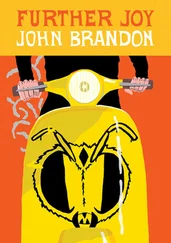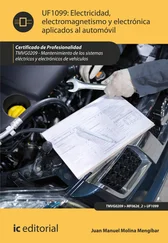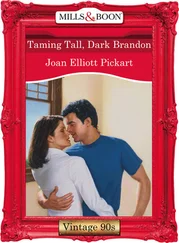Mayor Cabrera rose from the car and opened his trunk and threw the bag of chicken feed over his shoulder. He marched up to the door, lightheaded but certain, and knocked. After a minute he knocked again. She was home. There was no car in the driveway, so Cecelia was gone, but her mother had to be home. The kid had a car and the parent didn’t. Mayor Cabrera’s sister-in-law had sold her car about a year ago, to a man who lived outside town and bought used cars for no purpose except to collect them. He didn’t scrap them for parts or fix them up. Mayor Cabrera thought he heard something inside the house, but no one came to the door. He tried the knob and it wasn’t locked, so he pushed the door back a little and called out.
“Who is it?” his sister-in-law asked. She wasn’t alarmed, and the matter-of-factness in her voice was familiar to Mayor Cabrera. She’d never been alarmed, in the old days.
Mayor Cabrera found his breath and announced himself. He called out his first name, Ricardo.
After a silence, his sister-in-law said, “The mayor himself? Gracious, what an honor.” She told him he better come on in, if he was sure he had the right house.
“I’m just looking for a spot to set down this feed,” he said.
He ducked to get the bag through the doorway. He could hear the TV now. The scent of the place was familiar. It didn’t smell clean but it smelled wholesome, like old, simple things. Mayor Cabrera paused in the hallway and looked through a half-open door into what had to be Cecelia’s room. It was her room, he remembered. There’d once been a crib in it. Now her bed was made and a Rubik’s Cube sat on her pillow. The walls were bare. A guitar was lying across the desk, next to a tape recorder.
Mayor Cabrera walked through the living room, nodding hello as casually as he could, and let the bag come down and meet the kitchen floor. He could see the chickens scratching around back there, out the window, working their necks. He’d heard about the birds from his sister-in-law’s neighbors, a young couple that had moved out of Albuquerque because there were too many rules and regulations and now seemed to be rethinking their decision. The chickens looked healthy enough, he supposed, or at least they looked the way chickens usually look. Mayor Cabrera stepped back into the living room and leaned over to perform a stiff hug, his sister-in-law sunk into a wheelchair, then he took a seat on the couch. She didn’t really need a wheelchair, did she? There wasn’t anything particular wrong with her legs. Mayor Cabrera’s sister-in-law had him framed in an airtight smirk. He asked her if she always left the door unlocked and she said locking the front door was Cecelia’s department.
His sister-in-law was skinny, but Mayor Cabrera had prepared for worse. She wasn’t any skinnier than the skinny sister who worked at the gas station. Not that she looked healthy. Her hair was like straw. Her hands seemed heavier. She was the same person, though, the same defiant glint in her eyes. She held the remote for the TV poised, but didn’t change the channel. A show about the movies was on. People were waiting to give their opinions. Mayor Cabrera’s sister-in-law was looking at the TV, but she wasn’t paying attention to it. She was trying not to look at Mayor Cabrera, trying to leave the ball in his court. He wondered if she had any idea Lofte was in trouble, any idea she was a woman in decline living in a town in decline.
Mayor Cabrera asked how Cecelia was doing and his sister-in-law said she wasn’t around much. She had her classes, of course, but she’d invented a bunch of other ways to stay away. She’d taken a job on campus. She was in a band, though it seemed like maybe they’d broken up. Mayor Cabrera’s sister-in-law didn’t blame her daughter. She didn’t blame her one bit for steering clear of the house.
“She’ll come back to you,” Mayor Cabrera told her.
“One day she’s going to drive over to Albuquerque and never come back,” his sister-in-law said. “She’s smart enough to get tired of walking back into this house with me waiting on her. Forget Albuquerque, she’s going to drive down into Texas, or worse.”
Now on the TV they were showing pictures of actresses from ten years ago and then the same actresses today. Everyone was agreeing they looked better today.
“You should’ve been around,” said Mayor Cabrera’s sister-in-law.
“I know it,” he said. “I’ve handled things about as badly as possible.”
“There’s no one else to talk to about the things I want to talk about.” Mayor Cabrera looked right at her. “I’ve wasted a lot of time,” he said. He and his sister-in-law were breathing the same close air.
“Who used their time real well and who didn’t is not something I want to talk about.”
“A debacle, I think they call it. The last bunch of years.”
Mayor Cabrera’s sister-in-law shook her head, as if in bitter disagreement with herself. She looked him square in the face. “I miss her so much,” she said.
“Just as much as the day of the funeral sometimes.”
“And I have a hard time remembering her face.”
“I try to forget it but I can’t.”
“There was no way around missing her but you didn’t have to make me miss you too.”
“You reminded me of her. I didn’t want to get over her. I just wanted to pout.”
“I know the reason. It’s no excuse.”
“I handled things badly.”
Mayor Cabrera was being sincere and it felt good. Absurdly overdue. He wondered, if it weren’t for Dana, if he’d have ever been moved to fix any of this. He’d found out he could fall in love again. He’d found out there was hope for him.
Mayor Cabrera’s sister-in-law improved her posture, using the armrests of her wheelchair to get settled. Mayor Cabrera noticed that one of the rubber handles of his sister-in-law’s wheelchair was chewed up, and he remembered that handle. He realized it: this was his wife’s old chair. He couldn’t remember letting his sister-in-law have the wheelchair, couldn’t recall how she’d ended up with it. He didn’t recall a lot from the months surrounding his wife’s death. He wasn’t angry. Whatever was going on with his sister-in-law, it wasn’t her fault. She was off-course, like him.
“Do you remember how she used to eat corn one kernel at a time?”
“I do,” said Mayor Cabrera. “I used to cut the kernels off the cob with a knife.”
“She was so picky and organized. It was the opposite when we were kids.”
“I never let her cook,” Mayor Cabrera said. “She’d take too long. We’d have both starved.”
“She was the opposite when we were little.”
“If I let her do dishes, she’d be in there till midnight, holding bowls up to the light.”
“You spoiled her. You were lucky you got to do that.”
Mayor Cabrera thought of his dead wife’s tiny, soft hands. They’d felt like cats’ paws on his chest. He put his leg up on the coffee table, showing he was going to get comfortable. “These years have been a pile of crap,” he said. “It helps to say that.”
Mayor Cabrera’s sister-in-law clicked her cheek. She didn’t say anything at first and then she said, “Next time you go to the cemetery, I want you to take me.”
Mayor Cabrera hadn’t been to the cemetery since he’d become mayor. He nodded and reached out and touched his sister-in-law’s big cold hand.
“We’ll make it soon,” he said.
It was eleven in the morning and she was parked on a side street in a fancy neighborhood. The driveway she was observing had been empty and without action for forty-five minutes. Cecelia didn’t have one of Reggie’s songs in her head, and she decided to leave the radio off and exist in silence for a little while. If she wasn’t going to hear music of Reggie’s, she didn’t want to hear whatever some DJ was going to play.
Читать дальше












